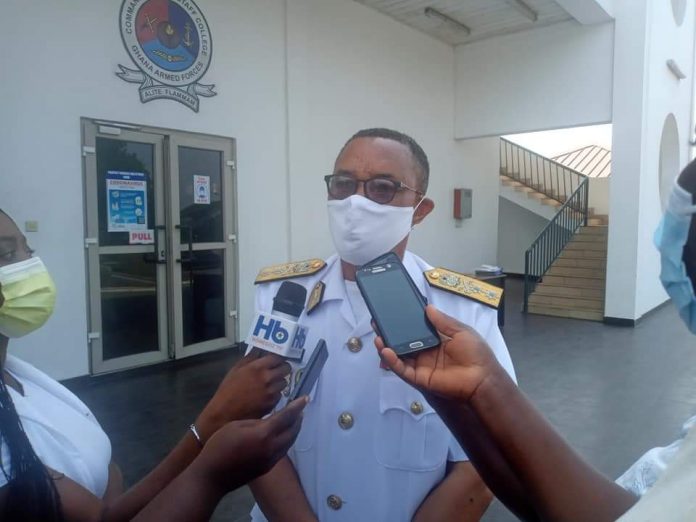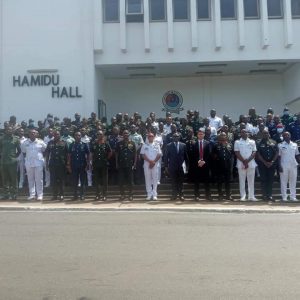
The Ghana Armed Forces Command And Staff College have opened a Maiden Maritime Sector Governance Course, with 81 participants and 10 facilitators, last Monday.
The week-long programme is expected to graduate 51 participants from Ghana and 30 from other allied African countries by Friday, 19th February, 2021.
The course is aimed at providing professional maritime practitioners, affiliated stakeholders and important decision-makers in the maritime industry, with the background knowledge required for effective maritime sector governance and related issues.
In his keynote address, the Vice-Chancellor, Regional Maritime University, Prof. Elvis K. Nyarko stated that overcoming challenges in the maritime sector requires clear strategic direction that is articulated in an appropriate policy framework as maritime threats are dynamic and will keep evolving, which makes it necessary for the Maiden Maritime Sector Governance Programme.
According to the professor, the course was formally called Exclusive Economic Zone (EEZ) Management and for the past 15 years of its existence, it had trained over a thousand participants from Ghana and other allied African countries until last year when the management decided to review the entire package to reflect contemporary issues in the maritime sector.
He said the new course encompasses every facet of the maritime sector, and not only the management of the exclusive economic zone as previously was the case.
He noted that for decades recognition had been given to land-based economic activities while little attention was paid to economic activities in the maritime space.
He said that sustainable management of maritime resources requires collaboration across sectors in the country, among nation-states and across the public-private sector and on a scale that has not been achieved.

And, that inappropriate institutional designs, organisational cultures, poor Institutional coordination and inadequate resources were the banes of poor maritime management in the country and across the continent.
He said most coastal states now have as an economic and security priority management and the operations in the maritime management, and these concerns have assumed centre stage in the maritime security and economic management considerations.
This is because of the enormous opportunities now realised in the maritime space.
On his part, the commandant of the Ghana Armed Forces Command and Staff College, (GAFCSC) Rear Admiral Moses Beick-Baffour, explained that the course review was occasioned by input from previous participants and facilitators.
He said there was the need to harmonize the industry activities with the AU and the ECOWAS maritime integrated strategies.
Other reasons, the Commandant expressed for the review, included requirements driven by the dynamic nature of the maritime industry as a whole and the Blue Economy which was described as “comprising a range of economic sectors and related policies that together determines whether the used maritime resources are sustainable.”
And that in the past they were only concentrating on piracy, fishery and pollution.
By Nii Okpoti Odamtten










